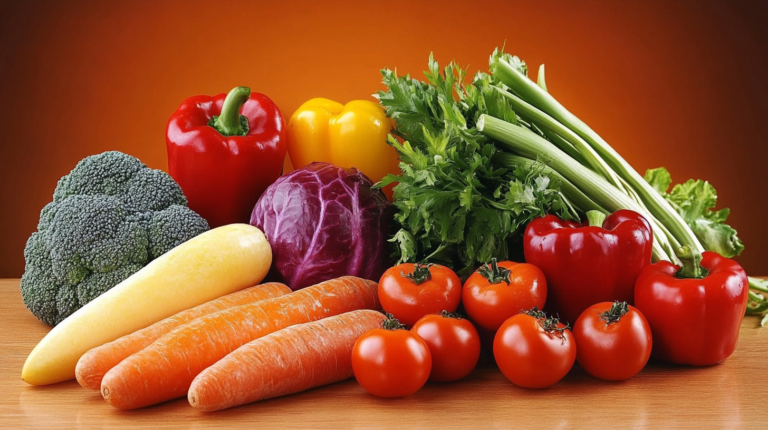1. Protein: Building Blocks of the Body (What Do Vegetarians Need the Most ? )
Protein is vital for growth, repair, and the overall maintenance of body tissues. While meat is a common protein source, vegetarians can obtain adequate amounts through plant-based foods. Beans, lentils, chickpeas, and quinoa are protein-rich alternatives that help fulfill dietary requirements. Including a variety of these sources can ensure vegetarians meet their daily protein intake.
2. Iron: Essential for Oxygen Transport
Iron plays a crucial role in the body’s oxygen transport system. While non-heme iron in plants is less readily absorbed than heme iron from meat, pairing iron-rich foods with vitamin C sources enhances absorption. Leafy greens, legumes, and fortified cereals are excellent iron sources for vegetarians. What Do Vegetarians Need the Most ?
3. Vitamin B12: A Critical Nutrient Often Overlooked
Vitamin B12 is primarily found in animal products, making it challenging for vegetarians to obtain through diet alone. Deficiency in B12 can lead to anemia and nervous system issues. Incorporating B12-fortified foods, such as plant-based milks and cereals, or taking a B12 supplement can help prevent deficiency.
4. Omega-3 Fatty Acids: Heart and Brain Health
Omega-3 fatty acids are vital for brain function and heart health. Although commonly found in fish, vegetarians can source omega-3s from flaxseeds, chia seeds, and walnuts. These plant-based options provide alpha-linolenic acid (ALA), a form of omega-3 that the body can convert to essential fatty acids EPA and DHA.
5. Calcium: Building Strong Bones
Calcium is essential for bone health and the proper function of muscles and nerves. Dairy products are traditional sources, but vegetarians can also obtain calcium from leafy greens, tofu, almonds, and fortified plant milks. Consistent intake of calcium-rich foods is essential to support a strong skeletal structure.
6. Vitamin D: Supporting Calcium Absorption
Vitamin D works in tandem with calcium to build and maintain bones. While sunlight exposure helps synthesize vitamin D, dietary sources like fortified foods or supplements may be necessary, particularly in regions with limited sunlight. This is a key nutrient for vegetarians aiming to meet daily bone-health requirements.
7. Zinc: Immune Function and Cell Growth
Zinc is essential for immune health, cell growth, and wound healing. Vegetarian sources of zinc include whole grains, legumes, and nuts. Ensuring adequate zinc intake through diverse food choices supports the body’s defense system and overall health.
8. Iodine: Essential for Thyroid Health
Iodine is critical for thyroid function, impacting metabolism and energy levels. Vegetarians, particularly those who avoid dairy, can rely on iodized salt or sea vegetables like seaweed to meet iodine needs. This often-overlooked nutrient is vital for maintaining metabolic balance. What Do Vegetarians Need the Most ?
9. Fiber: Digestive Health and Satiety
Fiber aids in digestive health and promotes feelings of fullness. A vegetarian diet is naturally high in fiber due to the abundance of fruits, vegetables, and whole grains. Incorporating fiber-rich foods supports gut health and provides sustained energy throughout the day.
10. Magnesium: Energy Production and Nerve Function
Magnesium is involved in energy production, nerve function, and muscle contraction. Leafy greens, nuts, seeds, and whole grains are excellent sources. Magnesium-rich foods in a vegetarian diet can enhance vitality and reduce fatigue.What Do Vegetarians Need the Most ?
11. Antioxidants: Cellular Health and Disease Prevention
Antioxidants help protect cells from damage caused by free radicals. Fruits, vegetables, nuts, and seeds are antioxidant-rich and essential for disease prevention. A diet abundant in colorful produce can provide ample antioxidants to support cellular health. What Do Vegetarians Need the Most ?
12. Folate: Cell Function and Tissue Growth
Folate is essential for cell function, tissue growth, and DNA synthesis. Leafy greens, legumes, and fortified cereals are good sources of folate, particularly important for pregnant women to support fetal development.
13. Phytochemicals: Natural Compounds for Health
Phytochemicals are natural compounds found in plants that can reduce inflammation and enhance immunity. Consuming a wide variety of vegetables and fruits provides these beneficial compounds, adding another layer of health benefits to a vegetarian diet. What Do Vegetarians Need the Most ?
14. Probiotics: Supporting Gut Health
Probiotics are beneficial bacteria that support gut health and immune function. Fermented foods like yogurt, kefir, and sauerkraut are rich in probiotics. Incorporating these into a vegetarian diet can enhance digestion and improve nutrient absorption. What Do Vegetarians Need the Most ?
15. Mindful Eating: Fostering a Balanced Approach
Mindful eating encourages a balanced approach to food, allowing vegetarians to tune into hunger cues and enjoy their meals fully. Practicing mindful eating helps create a harmonious relationship with food, supporting both physical and mental well-being. What Do Vegetarians Need the Most ?
Conclusion
A well-rounded vegetarian diet requires thoughtful planning and a focus on nutrient diversity. By prioritizing these essential nutrients, vegetarians can enjoy a diet that supports energy, vitality, and long-term health. Embracing a variety of plant-based foods brings both nutritional value and culinary joy, making every meal a celebration of wholesome living. What Do Vegetarians Need the Most ?
Post Disclaimer
The information contained in this post is for general information purposes only. The information is provided by Daily recipes and while we endeavour to keep the information up to date and correct, we make no representations or warranties of any kind, express or implied, about the completeness, accuracy, reliability, suitability or availability with respect to the website or the information, products, services, or related graphics contained on the post for any purpose.

